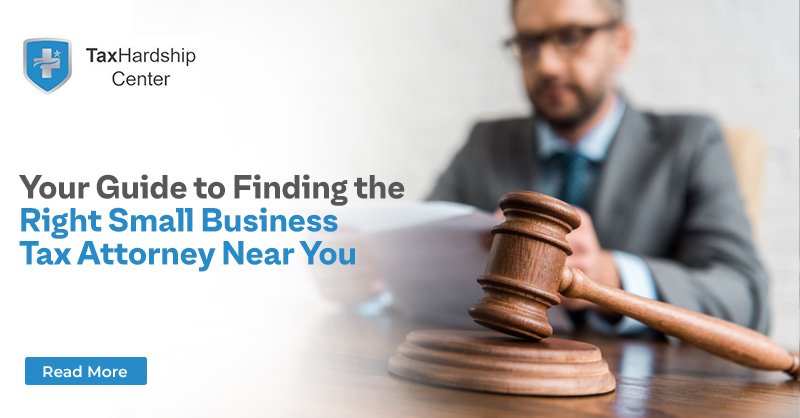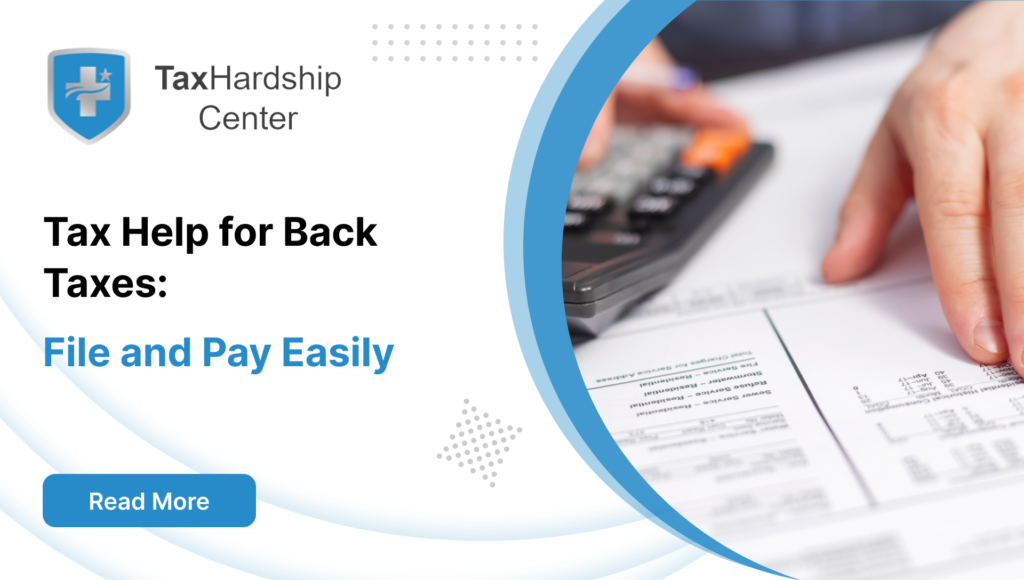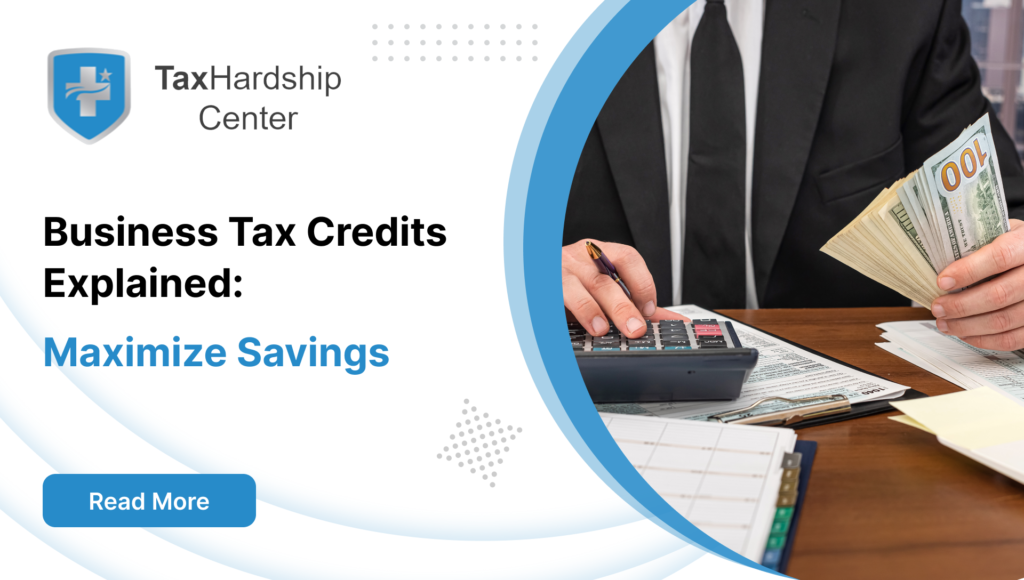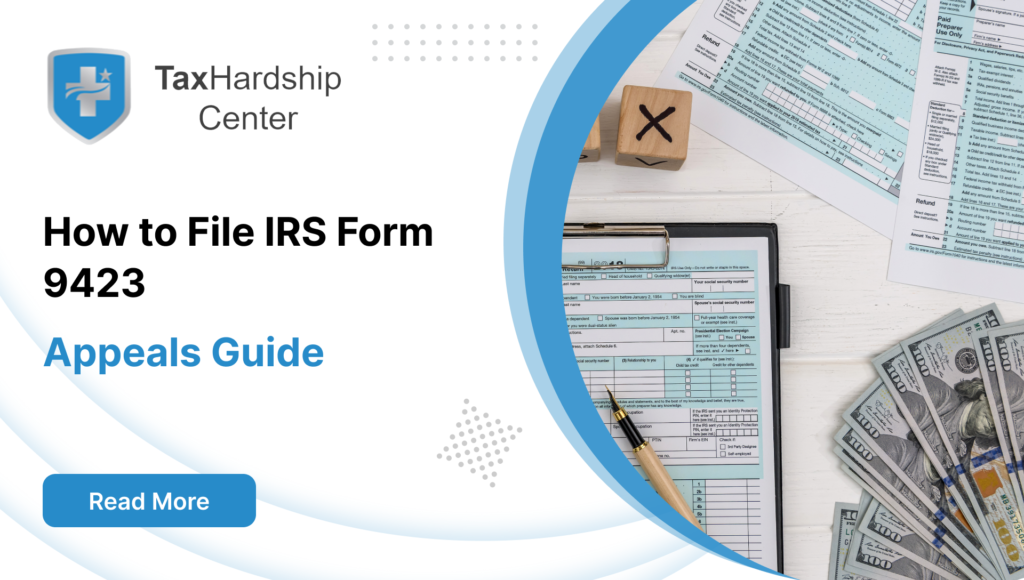Looking for the right small business tax attorney can be a challenging task. Whether new to the business world or an experienced entrepreneur, having an experienced attorney is crucial for success and financial compliance. It’s important to note that not all attorneys are created equal, and there are essential factors to consider beyond their qualifications and credentials.
This comprehensive guide will walk you through finding the ideal small business tax attorney near you. We’ll help you assess your specific tax needs and guide you in creating a customized plan that aligns with your communication style, moral values, and financial constraints.
Before we begin!
Are you struggling to find the right small business tax attorney? Look no further than the Tax Hardship Center! Our team of experienced tax attorneys is dedicated to providing personalized and comprehensive legal solutions to meet your specific needs. We understand the challenges small businesses face regarding taxes and are committed to helping you achieve financial compliance and success. By assessing your tax needs, reviewing qualifications and credentials, and developing a strategy tailored to your requirements, we can help you make an informed decision. Choose Tax Hardship Center for a client-centered approach, clear communication, and a commitment to ethical standards.
Assessing Your Tax Needs
Assessing your unique tax needs is essential before searching for a small business tax attorney. Identify the specific tax problems or challenges your small business is facing. This could include annual tax return preparation and filing for complex tax disputes or audits. Look for an attorney with expertise in your specific tax issues and understanding your industry’s intricacies. This knowledge will ensure they can navigate industry-specific deductions, credits, and compliance obligations.
Consider whether you need assistance with tax planning and strategic creation to maximize your profit margins or only require help when facing an audit, appeal, or back taxes. Some attorneys specialize in preventative measures, while others focus on dispute resolution. Determining your budget for legal services and the ongoing tax support you require is also essential.
Things to Look for in a Tax Attorney
When searching for a small business tax attorney, there are several qualities to look for to ensure you find the right fit:
1. Experience: When looking for a lawyer to handle tax cases, it’s essential to find someone with experience in dealing with tax law’s complex and nuanced nature.
2. Reputation: To find an accomplished tax lawyer, it is advisable to conduct thorough research by scrutinizing online reviews, referrals, and recommendations. Consider the attorney’s reputation, track record of success, experience, and expertise in handling tax cases. Businesses and individuals can increase their chances of obtaining favorable outcomes in their tax cases by undertaking this process.
3. Communication Skills: Effective communication is vital in attorney-client relationships. Look for a lawyer who can explain tax complexities in simple terms and is prompt in answering your questions and providing clarifications.
4. Problem-Solving Skills: A reasonable tax attorney should excel in solving complex problems. They should be able to think critically and find innovative approaches to help you resolve your tax issues efficiently.
5. Ethical Standards: Integrity and compliance with ethical standards are non-negotiable. Ensure that the tax attorney you choose upholds the highest ethical standards in their practice.
6. Client-Centered Approach: Look for an attorney who prioritizes your interests. They should have a client-oriented mindset and a genuine desire to meet your needs.
7. Attention to Detail: Accuracy is crucial when dealing with tax matters. Your attorney should be meticulous and pay close attention to detail to avoid costly mistakes.
8. Accessibility: Accessibility and availability are essential factors to consider. Ensure that your attorney is readily available when you need them and that they are responsive to your queries and concerns.
By evaluating potential tax attorneys based on these qualities, you can increase your chances of finding a suitable professional to address your small business’s tax-related concerns.
Reviewing Qualifications and Credentials
When selecting a tax attorney, it’s vital to carefully review their credentials and qualifications before choosing. Certifications or memberships related to tax law can be strong indicators of expertise in the field, although optional.
It’s equally important to consider the attorney’s experience in practicing tax law and their previous work on cases similar to yours. A successful track record in handling tax cases indicates their capability and proficiency.
Feel free to ask for references from previous clients who have dealt with similar tax matters. Speaking with past clients can provide valuable insights into the attorney’s communication skills, problem-solving abilities, and overall effectiveness.
Verifying the attorney’s ethical conduct and professionalism with the state’s bar association is also critical. This step ensures the attorney is in good standing with their governing body.
Lastly, take the time to explore the attorney’s website, blog, or other online posts related to tax law. This can give you a sense of their willingness to educate clients and share their knowledge and experiences.
Developing your Strategy
When searching for a small business tax attorney near you, developing a strategy to find the proper legal assistance for your situation is essential. Here are some steps to consider:
1. Establish Your Budget: Determine how much you can afford to spend on legal services. Remember to balance the cost against the attorney’s qualifications and experience.
2. Check References: Contact individuals or businesses you have worked with and ask for recommendations. Speaking to people with firsthand experience with the attorney can provide valuable insights into their capabilities and accomplishments. Check online reviews on platforms like the Better Business Bureau (BBB) for additional information and feedback.
3. Research and Referrals: Conduct thorough research and seek referrals from your professional network. Other business owners in your industry, professional colleagues, and industry associations can provide recommendations for reputable tax attorneys.
4. Online Search: Utilize online resources such as legal directories, bar association listings, and websites to find local tax attorneys. These platforms can provide information about their background, specialization areas, and clientele.
5. Initial Consultations: Schedule initial consultations with the attorneys you are considering. During these meetings, express your priorities and ask specific questions about how they have handled cases similar to yours. This will give you a sense of their competence and approach to tax-related matters.
6. Ongoing Strategy: Once you have chosen an attorney, communicate openly with them and stay involved in your tax issues. Assess their progress and effectiveness in addressing your tax concerns. If necessary, be open to adjusting your strategy or seeking alternative solutions if the current approach is not yielding the desired results.
In conclusion, finding the right small business tax attorney requires careful evaluation and consideration. By assessing your tax needs, reviewing qualifications and credentials, and developing a strategy, you can increase your chances of finding a skilled attorney who can effectively handle your small business’s tax matters.
If you’re ready to find the right small business tax attorney near you, Tax Hardship Center is here to help. Book your free consultation today, and let us assist you in navigating the complex tax landscape and ensuring your business’s financial stability. Our team of experienced tax attorneys is ready to provide the guidance and expertise you need to achieve success and compliance.
Frequently Asked Questions:
1. What are the benefits of hiring a small business tax attorney?
A small business tax attorney can help ensure compliance with tax laws, minimize tax liabilities, handle audits or disputes, and provide valuable advice for financial planning and growth strategies.
2. How much does a small business tax attorney cost?
The cost of a small business tax attorney can vary depending on factors such as their experience, expertise, and the complexity of your tax issues. Some attorneys charge an hourly rate, while others may work on a retainer basis. Discussing fees and payment structures with potential attorneys during initial consultations is essential.
3. How can a small business tax attorney help with tax planning?
A small business tax attorney can help with tax planning by analyzing your financial situation, identifying potential deductions and credits, and developing strategies to minimize your tax liabilities while maximizing your profit margins. They can also guide you on tax implications when expanding your business or making strategic decisions.
4. Can a small business tax attorney assist with tax audits or disputes?
Yes, a small business tax attorney can provide valuable assistance during tax audits or disputes. They can represent you in negotiations with tax authorities, help gather necessary documentation, and advocate for your rights and interests.
5. When should I hire a small business tax attorney?
It’s recommended to consult with a small business tax attorney as soon as possible, especially if you’re facing complex tax issues or anticipating significant changes in your business. They can provide guidance and proactive planning to ensure compliance with tax laws and prevent potential issues.








